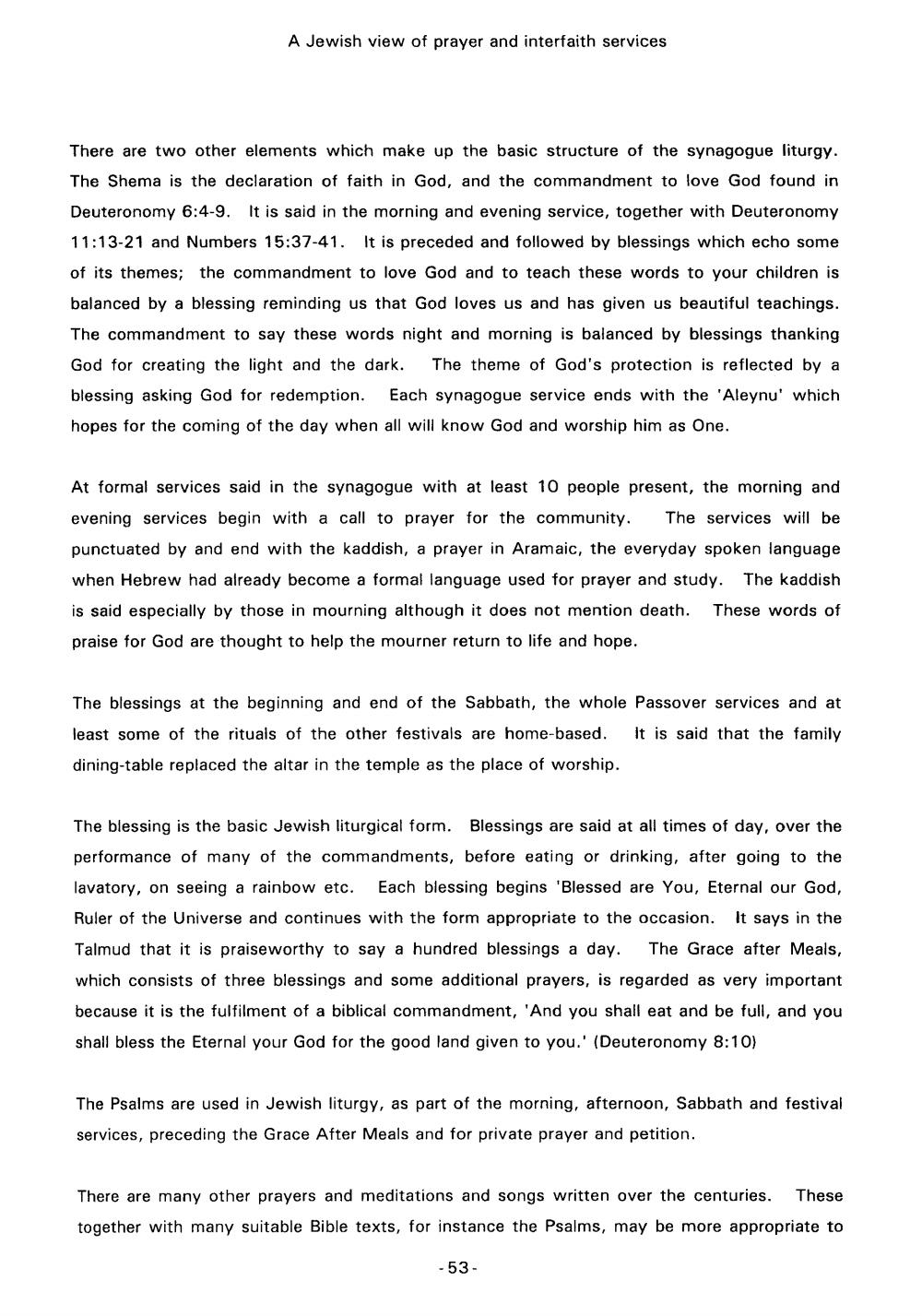________________
A Jewish view of prayer and interfaith services
There are two other elements which make up the basic structure of the synagogue liturgy. The Shema is the declaration of faith in God, and the commandment to love God found in Deuteronomy 6:4-9. It is said in the morning and evening service, together with Deuteronomy 11:13-21 and Numbers 15:37-41. It is preceded and followed by blessings which echo some of its themes; the commandment to love God and to teach these words to your children is balanced by a blessing reminding us that God loves us and has given us beautiful teachings. The commandment to say these words night and morning is balanced by blessings thanking God for creating the light and the dark. The theme of God's protection is reflected by a blessing asking God for redemption. Each synagogue service ends with the 'Aleynu' which hopes for the coming of the day when all will know God and worship him as One.
At formal services said in the synagogue with at least 10 people present, the morning and evening services begin with a call to prayer for the community. The services will be punctuated by and end with the Kaddish, a prayer in Aramaic, the everyday spoken language when Hebrew had already become a formal language used for prayer and study. The Kaddish is said especially by those in mourning although it does not mention death. These words of praise for God are thought to help the mourner return to life and hope.
The blessings at the beginning and end of the Sabbath, the whole Passover services and at least some of the rituals of the other festivals are home-based. It is said that the family dining-table replaced the altar in the temple as the place of worship.
The blessing is the basic Jewish liturgical form. Blessings are said at all times of day, over the performance of many of the commandments, before eating or drinking, after going to the lavatory, on seeing a rainbow etc. Each blessing begins 'Blessed are You, Eternal our God, Ruler of the Universe and continues with the form appropriate to the occasion. It says in the Talmud that it is praiseworthy to say a hundred blessings a day. The Grace after Meals, which consists of three blessings and some additional prayers, is regarded as very important because it is the fulfilment of a biblical commandment, 'And you shall eat and be full, and you shall bless the Eternal your God for the good land given to you.' (Deuteronomy 8:10)
The Psalms are used in Jewish liturgy, as part of the morning, afternoon, Sabbath and festival services, preceding the Grace After Meals and for private prayer and petition.
There are many other prayers and meditations and songs written over the centuries. These together with many suitable Bible texts, for instance the Psalms, may be more appropriate to
-53




